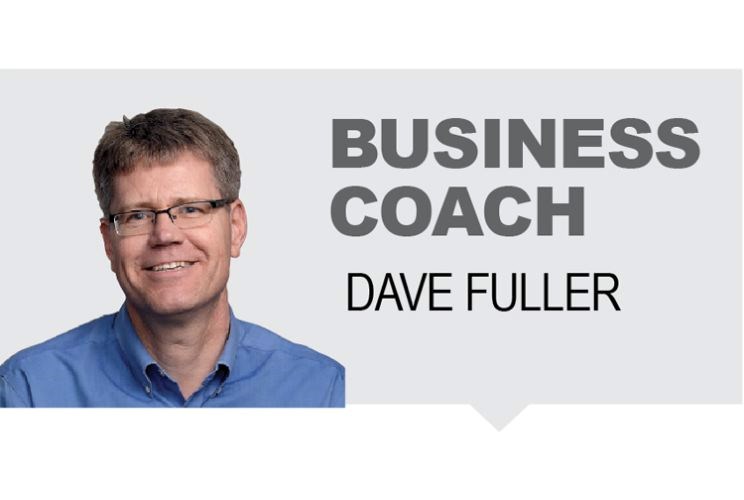Last week, I told a prospective client that I didn't think that I could add enough value and wouldn't take his money for business coaching. This would have been a nice-sized client for me and would have generated thousands of dollars in revenue. He had 20-plus employees and was doing $2-3 million dollars in business. He was stressed because his business had lost a key customer, he knew he had to make some changes to replace the lost $300,000 in revenue.
It's not that I couldn't have helped him.
In fact, he said at the end of our conversation that the coaching session had been very valuable to him. He had more clarity on what he needed to do. I had provided him with some insight into some solutions that he hadn't considered. He appreciated the opportunity to talk about his challenges in a confidential manner with someone who understood what he was going through.
It's that he already had a solution to his $300,000 problem and had cut his expenses by 30 per cent in the short term.
He had an accountability and support structure in place and his business had systems in place that enabled him to work at a balanced level that sustained his lifestyle. In other words, he was doing almost everything right.
I knew that I probably could have sold him a coaching package and that he would have derived some value from my services, however the value I could create for him would have been less that ideal from my point of view.
Now I know there are going to be some people in sales that would think that people like me are crazy and avoid having me talk to any of their sales teams. They would probably ask me why I didn't close the sale? "You mean you had a fish on the line and you didn't reel him in? You let money walk out the door?"
But it's exactly that mentality that gives sales people a bad name. Why is it that in business we think that we need to sell to every customer that comes our way and expresses an interest in our products or services? So often our sales teams are so focused on hitting their sales targets that they don't stop and ask if what they are doing is right for the customer.
The pressure to close the sale is so great that they want to close at any cost.
Instead of thinking about closing, we ought to be thinking about creating value. If we are only focused on closing rather than creating value in sales, it's like putting your car in park while trying to get to your destination. Things are going to come to a halt rather quickly and the result is not going to be good either for you or the car.
If we can determine through our sales cycle and proper questioning whether the person we have in front of us is an ideal client, that they need what we have, can afford to pay for it and are ready to make the decision, we are in a good spot.
However, as we go through that process of discovery, we find that the conditions are not exactly ideal. In other words, the customer isn't ready, shouldn't be buying or the product or service we are offering isn't going to solve their problems in the long run, then we need to slow down the sale. Unfortunately, some companies take the short-term approach in order to have the quick bucks.
When we fail to have our customers walk away knowing that what they just bought is going to make a significant difference to the pain or pleasure that they are seeking, we are in trouble over the long run. We will not get the repeat business. We will fail to get testimonials and referrals that ensure that our business will thrive for years to come.
Sales can be the toughest part of any business. Having great sales people that who know how to create value and understand clearly the sales cycles and systems that generate repeat customers is essential to your success. Having a sales system that ensures that customers see the value that you are creating enables your teams to close business transactions consistently and easily. However, there are times when turning away a sales prospect might be the best thing you can do.
I am confident that my sales prospect will be back to me in the future. He has clarity on what I can do for him when he needs it and he has customers who need my services as well. He knows that I won't sell him anything that he doesn't need and that I only work when I can create value for him as a customer. Yes, I lost a short-term sale, but hopefully I spent my time building a valuable relationship based on trust.
Dave Fuller, MBA, is an award-winning certified professional business coach and the author of the book Profit Yourself Healthy. Want a valuable conversation with Dave? Email [email protected]



